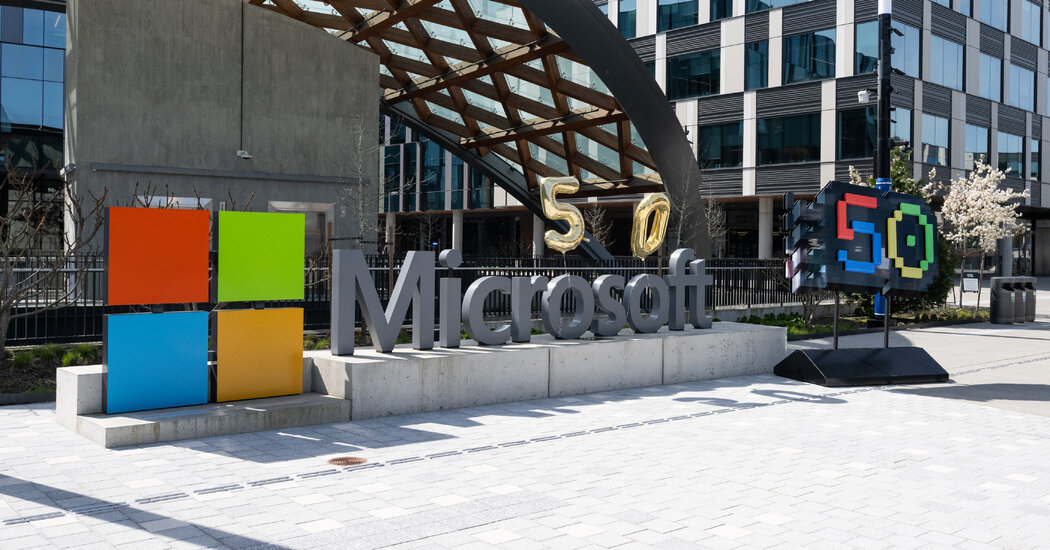Microsoft’s big spending on artificial intelligence shows no signs of letting up.
On Wednesday, the company reported spending a larger-than-expected $34.9 billion on new projects in the three months through Sept. 30 as it races to build data centers that provide computing power to fuel the A.I. boom, a l74 percent increase from the same period a year ago.
Microsoft reported sales of $77.7 billion, up 18 percent from the same period last year. The company reported $ 27.7 billion in profits, up 12 percent.
Driving much of the company’s growth was its flagship cloud computing product Azure, as well as a partnership with the A.I. start-up OpenAI.
The company’s A.I. offerings are driving “real-world impact,” Satya Nadella, Microsoft’s chief executive, said in a statement. “It’s why we continue to increase our investments in A.I. across both capital and talent to meet the massive opportunity ahead.”
The earnings report was largely in line with Wall Street’s expectations. Microsoft’s shares sank more than 3 percent in after-hours trading.
On Tuesday, OpenAI announced that it had hammered out the details to convert into a for-profit entity, including a new agreement with Microsoft to restructure their relationship. Under the terms, Microsoft will get a roughly $135 billion stake in OpenAI.
The companies also extended an agreement to give Microsoft unfettered access to all OpenAI technology that it could sell to customers and use in its own products until 2032. And OpenAI committed to buying $250 billion in computing power from Microsoft — more than three times Azure’s sales in Microsoft’s last fiscal year.
Already, Microsoft’s A.I. sales included selling access to the systems created by ChatGPT’s creator, OpenAI, and provided computing power when customers used OpenAI products directly from the start-up.
Microsoft reported that Azure sales rose 40 percent in its most recent quarter. The company has cautioned that the demand for its cloud computing services outpaces its available data centers. As a result, the company has been furiously expanding.
Still, some analysts have warned that tariffs and a less optimistic economic outlook could cause some customers to pull back spending.
Sales were up 17 percent, to $33 billion, for commercial subscriptions to Microsoft’s productivity tools for businesses, which include Excel, Teams and Word, as well as its A.I. assistant tool Copilot.
Microsoft saw a 4 percent increase in sales, to $13.8 billion, in its personal computing business. This year, Microsoft had an uptick in demand for its PC laptops, which analysts think was the result of companies and consumers front-loading purchases before new tariffs kicked in.
(The New York Times has sued OpenAI and Microsoft, claiming copyright infringement of news content related to A.I. systems. The two companies have denied the suit’s claims.)
Natallie Rocha is a San Francisco-based technology reporter and a member of the 2025-26 Times Fellowship class, a program for early-career journalists.
The post Microsoft Increases Investments Amid A.I. Race appeared first on New York Times.




